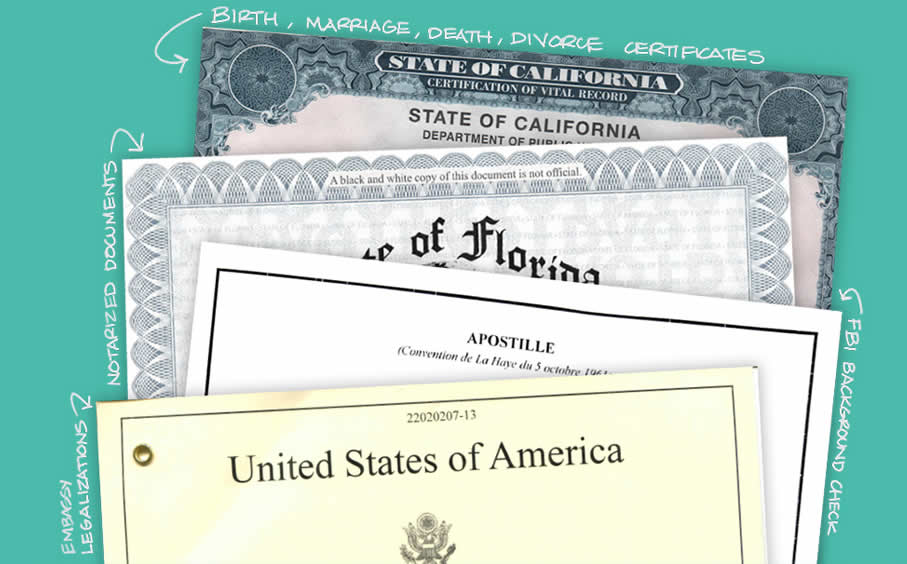Complete Overview to Apostille in Houston, Texas
Complete Overview to Apostille in Houston, Texas
Blog Article
Revealing the Important Function of Apostille in Simplifying International Record Validation Processes
In the world of international affairs, the validation of files holds critical significance. Amidst the internet of administrative treatments and varying lawful needs across different countries, the role of apostille becomes a crucial facilitator in streamlining the process. By attaching an apostille to a file, it goes through a simplified recognition that is recognized throughout numerous countries, hence relieving the concerns related to cross-border record authentication. As we dive right into the intricacies of this specialized certification, the nuances between apostille and standard validation methods emerge, losing a brand-new viewpoint on the efficiency and performance of this vital yet commonly overlooked procedure.
Recognizing Apostille Basics
In the realm of paper recognition for worldwide usage, comprehending the basic concepts of apostille authentication is vital. An apostille is a customized certificate that confirms the credibility of a document for usage in international countries that become part of the Hague Apostille Convention. Recognizing the fundamentals of apostille entails recognizing that it does not confirm the web content of the file but rather licenses the signature and seal of the issuing authority. This certification simplifies the procedure of global file recognition by guaranteeing that the record will be identified as authentic in countries that are events to the Apostille Convention.
Apostilles are commonly provided for crucial documents such as birth certifications, marriage certificates, and academic transcripts. The key parts of an apostille consist of the name of the nation where it was provided, the name of the individual authorizing the document, the capacity in which the individual authorized the paper, the seal or stamp of the issuing authority, and the date of issuance. By comprehending these basic facets of apostille verification, organizations and individuals can browse the intricacies of global record validation with confidence and efficiency.
Advantages of Apostille for Validation

Furthermore, the apostille simplifies the confirmation process by offering a standardized certification that validates the credibility of the file, such as birth certifications, marital relationship licenses, notarized actions, and scholastic records. This standardized format minimizes the danger of denial because of unfamiliarity with foreign records, therefore improving the effectiveness of cross-border transactions.
In addition, the apostille helps in getting rid of the requirement for numerous layers of verification by government authorities, as the apostille itself signifies the file's validity. This not just accelerates the record recognition procedure however additionally reduces the connected costs and administrative hurdles, making it a practical and economical solution for organizations and individuals participating in international tasks.
Simplifying Cross-Border Record Authentication
Streamlining cross-border try here document verification, the apostille gets rid of the need for extensive and typically difficult validation procedures usually needed when providing records in international countries. By fastening an apostille to a file, the releasing nation licenses the credibility of the document, making it conveniently appropriate in other nations that are part of the Hague Apostille Convention.
Moreover, the apostille system enhances the safety and trustworthiness of cross-border document validation by providing a clear and globally approved system for confirming the validity of papers. This simplification of authentication processes not just benefits people and businesses seeking to operate internationally but also promotes smoother communication and collaboration in between nations by guaranteeing the dependability of shared documentation.
Significance of Apostille in Legalization

Apostille ensures that lawful papers such as birth certifications, marital relationship certificates, powers of attorney, and court papers are recognized and accepted in international jurisdictions. This is specifically important in lawful matters such as global adoptions, migration processes, or company transactions that entail parties from different nations. The apostille procedure decreases the lengthy procedures and governmental obstacles commonly connected with paper legalization, making worldwide transactions much more efficient and legally binding. Finally, the value of apostille in the legalisation of global documents can not be overemphasized, as it promotes smooth cross-border communications and makes certain the validity and authenticity of lawful paperwork.
Apostille Vs. Typical Recognition Approaches
Comparing apostille with typical recognition techniques discloses unique distinctions in the performance and simplicity of file verification processes for international use. Apostille, as a streamlined and standard approach click over here now developed by the Hague Convention, provides a more simple method to verifying records compared to standard techniques. Typical validation processes usually entail multiple actions, consisting of registration, accreditation by federal government authorities, and consular legalization, which can be taxing and troublesome.
Apostille, on the various other hand, simplifies this procedure by licensing records with a solitary apostille certification released by a qualified authority in the country where the record originates (Houston TX Apostille). This certificate is recognized by all participant nations of the Hague Convention, getting rid of the requirement for additional embassy legalization. As an outcome, apostille significantly lowers the time and effort needed for document recognition, making it a favored option for people and organizations involved in worldwide purchases
Final Thought
In verdict, apostille plays a vital duty in streamlining worldwide record recognition processes by supplying a standardized approach of verification that is acknowledged throughout participating countries. By enhancing the legalisation procedure, apostille eliminates the requirement for multiple layers of validation, minimizing time and expenses connected with cross-border record verification. This efficient system benefits people and organizations looking for to make use of foreign files for lawful functions, making sure smoother global purchases.
By fastening an apostille to a record, it undergoes a streamlined recognition that is acknowledged across numerous countries, therefore reducing the burdens associated with cross-border paper authentication. Streamlining cross-border file authentication, the apostille eliminates the demand for extensive and frequently challenging validation procedures commonly required when providing records in foreign countries. By fastening an apostille to a document, the releasing country accredits the authenticity of the paper, making it conveniently appropriate in various other countries that are part of the Hague Apostille Convention. By fastening an apostille to a paper, the issuing nation licenses the credibility of the trademark, seal, or stamp on the document, making it legitimate for usage in an additional member country of the Hague Apostille Convention without the requirement for further legalisation.

Report this page